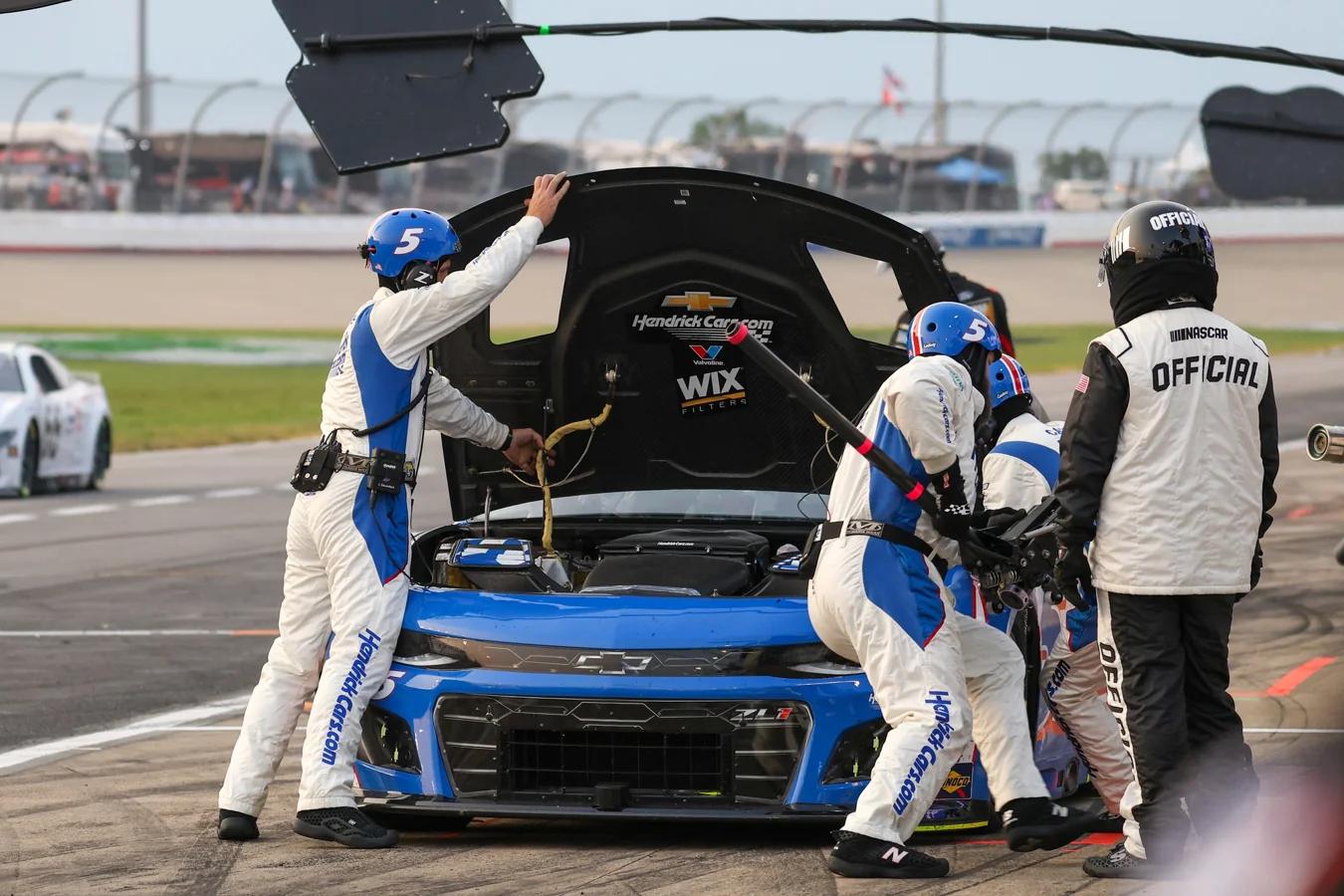Chase Elliott, responding to ongoing discussions within NASCAR, recently provided his perspective on the hot topic of whether the Cup Series should increase engine horsepower for better racing—a subject generating considerable buzz among fans and insiders. The conversation about a horsepower boost comes as current Next Gen Cup cars are limited to a maximum of 670 horsepower, and voices like Elton Sawyer’s have acknowledged that officials are considering changes to enhance the action, particularly at short tracks.
Before the race weekend in Nashville, Elliott, who drives the #9 car and remains one of NASCAR’s most popular competitors, addressed the horsepower issue when asked by the media. Questions focused on how much more power would be necessary for drivers to notice a tangible difference, and whether such changes are realistic under current regulations. Fans and industry experts alike have been pressing for updates, hoping that an increase might lead to improved racing quality and excitement.
Engine Manufacturers Play a Key Role in Possible Changes
Elliott emphasized that the question of an appropriate horsepower increase depends heavily on input from engine manufacturers, including chevrolet/”>Chevrolet, toyota/”>Toyota, and ford/”>Ford, who work within the specific framework established by NASCAR’s Next Gen rules.
“I’m not super in-tune with what those numbers are or like what’s being talked about as far, as how far they want to go with it. So I don’t know that I’m super educated on kind of what’s possible, what’s even true or not true. I think it’d be worth a shot, you know, if the engine manufacturers are willing to do it,”
Elliott said [8:23 onwards]. —Chase Elliott, driver

“And that’s probably going to be a question for them, truthfully, because they’re going to dictate how much power we can give the current packages that we have and still have the longevity and the reliability we expect to have because I think we have to run them three times,”
he added. —Chase Elliott, driver
Elliott clarified that unless there is a complete overhaul in engine regulations, manufacturers are required to comply with the Next Gen framework. Even within that system, achieving consensus among the manufacturers is a persistent challenge, especially since they each look for ways to maximize their strengths under the existing guidelines. Elliott pointed out that it is rarely straightforward for Chevrolet, Toyota, and Ford to agree on any single specification, yet he expressed hope that a shared solution could be achieved for the good of the sport.
Elliott Remains Open to Trying More Horsepower
Throughout his career, Elliott has witnessed the dynamic between NASCAR’s main manufacturers, noting their tendency to prioritize their competitive interests. However, he maintained optimism that alignment on engine output could be possible, and argued that the only way to know the real impact of more horsepower is simply to test it on track. While he acknowledged that raising engine limits might not necessarily produce dramatic changes in racing action, it could also have a major positive influence—which, according to Elliott, justifies the experiment.
This debate over horsepower not only involves technical discussions but is also closely watched by NASCAR insiders, drivers, and organizations invested in the future excitement and competitiveness of the series.
Michigan International Speedway Seen as a Standout Venue
As Elliott looks ahead to the upcoming Cup Series stop at Michigan International Speedway, his reflections on the circuit underscore its significance both in racing terms and for Chevrolet. With three top-five and six top-10 finishes at Michigan, Elliott’s record reflects his consistent performance at the venue, which is particularly meaningful as General Motors—Chevrolet’s parent company—is based in the state.
“Yeah, for sure. It’s always good to go to Michigan (International Speedway) and have a good run. It’s certainly changed a lot, you know, over the years, just with how the cars have changed. But the racetrack itself is like the most consistent place I’ve ever seen for, for a racetrack that has those hard winters. It just doesn’t seem to get old, which is kind of crazy,”
Elliott said [7:19 onwards]. —Chase Elliott, driver
Elliott shared his appreciation for Michigan as a racing destination, particularly noting the experience of competing there during the summer. He highlighted how the track’s durability and steady performance year after year set it apart from other venues that endure harsh winters. For both Elliott and the Chevrolet team, Michigan stands out as a strategic and symbolic event on the Cup calendar.
Looking to the Future: Testing the Limits for Better Racing
Chase Elliott’s opinion on NASCAR increasing horsepower adds a notable voice to a growing debate within the motorsport community. As NASCAR examines possible tweaks to its engine package, the willingness of engine manufacturers like Chevrolet, Ford, and Toyota to collaborate will be essential. Whether a boost in horsepower will improve racing remains to be seen, but according to Elliott, the only way to find out is by giving it a try. With high-profile races like Michigan up next, how these potential changes are tested and adopted could shape the future dynamics of the Cup Series and keep fans, drivers, and manufacturers alike engaged and invested.
